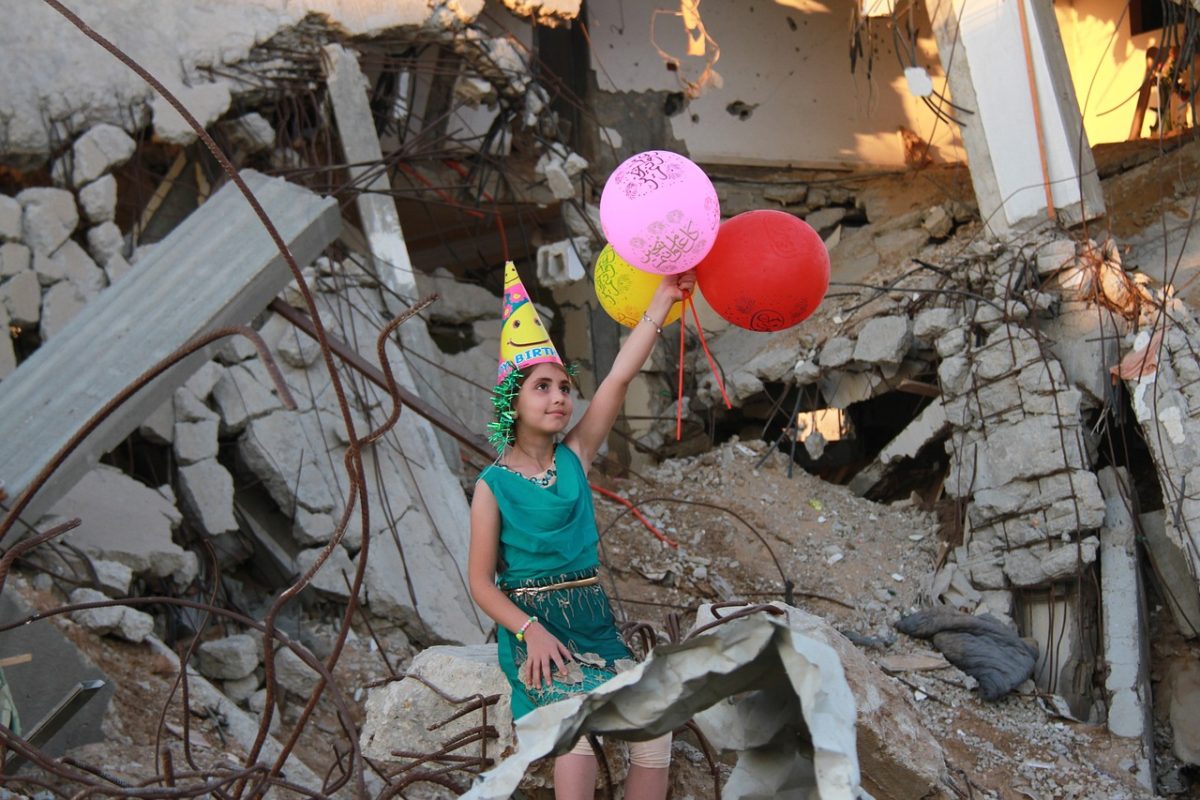The purpose of this article isn’t to blame any side. Rather, to discuss the context for why a ceasefire is needed.
Hamas’ surprise October 7 attack on Israeli civilians was a reprehensible act. IDF spokesperson, Lt. Col. Jonathan Conricus, said in an update that Hamas killed an estimated 1200 Israeli people. After the attack Israel formally declared war against Hamas. With the continuous fighting, it has been evident why there should be an additional ceasefire, beyond just the exchange of hostages, between Israeli and Hamas. A ceasefire is a temporary suspension in fighting between both sides, in which peace talks usually take place. With numerous lives being shattered, ripped apart, and upended- a ceasefire must be declared by both sides. How many more innocent souls will have to perish? How much more humanitarian chaos should be happening? Humanity must prevail, therefore a new ceasefire should be considered.
The average Palestinian is suffering due to Hamas’s actions. With the relentless bombs dropping on Gaza, the death toll continues to just keep rising. About 7,000 Palestinians are believed to be trapped under the rubble. According to the Palestinian Health Authority, more than 15,000 Palestinians, including 6,150 children have been killed since October 7. This number is especially shocking due to the 2.3 million people living there includes more than half children, under 18 (AlJazeera). Furthermore, according to the United Nations Relief and Works Agency, 1.7 million of the 2.3 million population of Gaza have been internally displaced. 200,000 Israelis have also been internally displaced (AP News). People in Gaza have been struggling for basic human necessities such as food, water, and electricity following Israel’s blockade on Gaza, an act of collective punishment on all of Gaza, for Hamas’ actions.
Even before the recent events, Gaza was already dealing with a severe humanitarian crisis as a result of Israel’s 16 year blockade, leaving more than half of the population having to depend on international assistance. Piping water is only available in some parts of southern Gaza, and even then 96% of the water supply in Gaza is deemed unfit for human consumption according to the United Nations. The blockade also affects access to healthcare as waterborne diseases like cholera and typhoid have now become prevalent. Hospitals are unable to function, due to lack of medical supplies, and the World Health Organization reported that, “damaged water and sanitation systems, and dwindling cleaning supplies have made it almost impossible to maintain basic infection prevention and control measures,” in healthcare facilities.
With these serious violations of humanitarian laws and consistently increasing death tolls, the need for a ceasefire is compulsory. A ceasefire would stop all the unlawful, indiscriminate attacks carried out by all parties on civilians. It will give a chance for civilians to have access to life-saving aid, water, medical supplies, and to further allow hospitals to receive medications and equipment to save the wounded. Many countries including Turkey are willing to help rebuild Gaza’s infrastructure. “We will make efforts to rebuild the damaged infrastructure in Gaza and rebuild the destroyed schools, hospitals, water and energy facilities,” according to Recep Tayyip Erdoğan. A ceasefire will also allow the International Criminal Court, and the Independent Commission of Inquiry, to further carry out their investigations to stop all the violations and war crimes on both sides of this war. It would also offer additional chances for negotiations to be held for the release of Israeli hostages detained in Gaza.
Negotiations between the United States, Qatar, Egypt and Israel resulted in a temporary 4 day ceasefire. The 4 day truce, agreed upon by both Israel and Hamas took place on November 24 and was renewed twice, officially ending on December 1st. While the truce was in place, a prisoner exchange between Israel and Hamas took place and humanitarian aid was allowed to enter into Gaza. Of the original 240 Israeli hostages taken on October 7, 110 have been released per the truce, with 240 Palestinian prisoners also being released. One hour before the truce expired, Israel claimed that its Iron Dome defense system detected incoming rockets from Gaza- the result of which Israel intercepted a launch from Gaza (IDF Twitter). Minutes after the truce expired, both the Israeli military and Gaza’s Interior Ministry reported that Israeli air and artillery strikes were being carried out in Gaza. The IDF then announced on Twitter that, “Hamas violated the operational pause, and in addition, fired toward Israeli territory. The IDF has resumed combat against the Hamas terrorist organization in Gaza”. Both Israel and Hamas strongly feel that the other side is responsible for the abrupt end to the truce with, The New York Times reporting that, “A week-long cease-fire in the Gaza Strip collapsed on Friday morning, with Israel and Hamas blaming each other for the breakdown of a truce that had allowed for the exchange of hundreds of hostages and prisoners, and that had briefly raised hopes for a more lasting halt to the fighting.”
With the end of the ceasefire and the suspension of aid, the humanitarian crisis in Gaza is sure to become worse each passing day. Qatar, which played a crucial role in prior negotiations, says that negotiations between Israelis and Palestinians were still underway. We can only hope that a continued ceasefire can be established soon.

